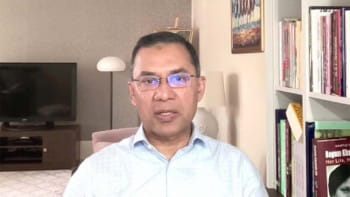Using mortgage to build, own a property

Building homes or buying other properties require a large amount of funds. But there are many people who can't afford to pay the entire cost out of their pockets.
One financial tool holds the key to helping people get rid of the financial crunch: mortgage.
The financial tool is a loan used to buy homes and other real estate products. The property itself serves as collateral for the loan. The property stays in possession of the lender until the loan is repaid in full.
If the borrower can't pay back the loans, the lender will have the right to seize it and sell it through auctions.
Normally banks and non-bank financial institutions (NBFIs) offer mortgages. There are some cooperative banks that lend using the financial tool.
Mortgages can be secured on moveable property or immovable property. Cars, ships, and boats can be mortgaged, said Md Kyser Hamid, managing director of Bangladesh Finance, a non-bank financial institution (NBFI).
For example, one can borrow from a bank or NBFI against a Tk 1-crore car. Industry people call it hypothecation, which occurs when an asset is pledged as collateral to secure a loan.
Similarly, businesses can mortgage goods or products to borrow.
Previously, mortgages were allowed through the use of a power of attorney. The government does not allow a representative to mortgage a property despite having a power of attorney.
Only the owner of a piece of land or establishment can mortgage those, said Sheikh Jalal Md Khalid, executive manager of BASIC Bank.
If someone wants to construct a building on their land or inherited property, they can easily do it. Banks and NBFIs provide finances of up to 80 per cent of the construction cost.
For home loans, banks have a loan limit of a maximum of Tk 2 crore, and they can finance a maximum of 70 per cent of the property value. NBFIs do not have any loan limit.
Sabed Bin Ahsan, head of customer experience and business planning at DBH Finance Corporation, says they finance up to 85 per cent of property value based on clients' repayment capacity.
DBH usually takes about two days to process a loan application. For self-employed clients, it may take a few more days to verify the income.
One can take the loan for a maximum of 25 years, but it will not normally exceed one's retirement age or 65 years.
If one can manage 20 or 30 per cent of the cost from their equity, one can easily finish the construction work.
The mortgage loans will be repaid as a monthly instalment.
If the borrower decides to draw down the loan in phases, they will pay the interest on the amount they have accessed until the entire amount is availed. The interest is called pre-equated monthly instalments.
The interest rate on mortgage loans at banks and NBFIs is 8 to 9 per cent. Leasing companies usually charge 10 to 11 per cent.
Mamoon Mahmood Shah, managing director of NRB Bank, says banks and NBFIs give mortgage money phase by phase so that borrowers can give instalments from rent and other incomes.
"We give money gradually because we want to make sure that the borrower does not get any chance to divert funds to other areas," he said.
In Bangladesh, mortgaging has not developed much.
Mortgage contributes 3 per cent to 3.5 per cent to the gross domestic product of the country. It is 10 per cent in India, 6 per cent in Nepal, and 28-29 per cent in Thailand.
It is about 80 per cent in European countries, said Hamid.
"If the system of mortgage develops, there will be no problem for people to buy land, houses and cars," he said.


 For all latest news, follow The Daily Star's Google News channel.
For all latest news, follow The Daily Star's Google News channel. 



Comments